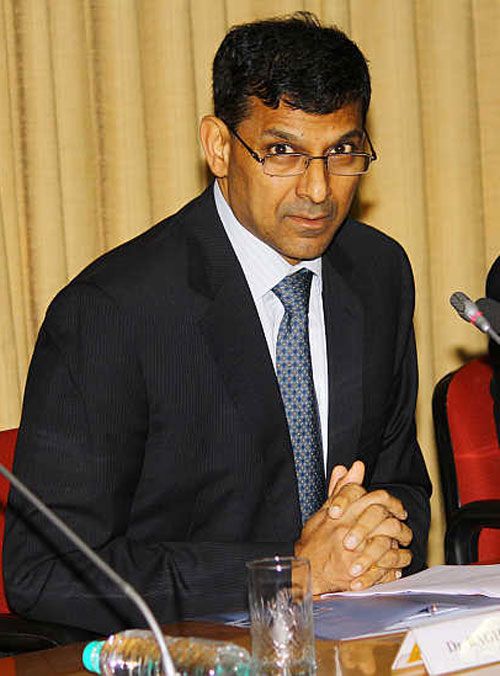 Fresh from his success in securing a mandated inflation target, Reserve Bank of India Governor Raghuram Rajan has revived another long dormant reform as he seeks to modernise India's financial architecture: a freely floating currency.
Fresh from his success in securing a mandated inflation target, Reserve Bank of India Governor Raghuram Rajan has revived another long dormant reform as he seeks to modernise India's financial architecture: a freely floating currency.
Rajan called in April for full convertibility in 'a short number of years', having first raised the prospect when he took office in 2013. While it is unlikely to be realised during his current term, he is laying the ground work for it to happen.
A policymaker familiar with Rajan's views described convertibility as the governor's 'next big ambitious goal'.
The RBI did not have an immediate comment on the subject.
The move is in tune with the nationalist government's ambitions to increase India's weight on the international stage; even if economic fundamentals and political realities mean a freely floating rupees is still years away.
"It is the right time to take baby steps to move towards capital account convertibility," said one senior finance ministry official.
Last month, the Reserve Bank allowed companies to raise rupee debt abroad for the first time.
While the debt will be denominated in rupees no rupees will leave or enter India as the transactions will be settled in dollars.
But, this symbolic move towards greater openness will grant Indian companies access to a wider pool of investors, potentially lower borrowing costs and give the rupee more visibility in global markets.
India's currency regime is effectively a managed float, meaning there is a currency market, but the RBI intervenes to contain volatility.
Investors are also not free to buy assets at will: foreign investors can freely invest in equities, but they cannot buy more than $80 billion of the country's debt - a limit that they are already pressed up against.
Some finance ministry officials and policymakers interviewed by Reuters said opening up the rupee was a logical next step after India formally adopted inflation targetting in March, and the government outlined a plan to reduce the fiscal deficit.
However, neither of those achievements has been tested yet. A poor monsoon, for example, or a sharp recovery in global oil prices could push inflation higher.
And any shift on the currency will be gradual and cautious as India's shallow financial markets and a still unreformed banking system are vulnerable to major external shocks, such as the start of a tightening cycle in the United States.
ROLLER COASTER
"We are a long way from achieving full capital account convertibility. First the macro fundamentals like inflation, and the fiscal deficit should be fixed -- otherwise it will be like putting the cart before the horse," A Prasanna, economist at ICICI Securities Primary Dealership, said.
Volatile inflation and high government requirements have rendered India's rupee and interest rates vulnerable to sharp swings that the authorities fear would become more destabilising should they loosen their grip on the managed float.
For some officials, the answer is a progressive move phased over several years, as envisaged by former RBI deputy governor S.S. Tarapore, author of a landmark 1997 report.
Having allowed companies to raise rupee debt abroad, the government could follow China's example by encouraging companies to settle trade transactions in rupees, creating offshore supply.
Allowing foreign direct investment in sectors that are currently restricted could also help advance the internationalisation of the Indian economy.
"We have already achieved about 30-40 percent of the capital account convertibility. It is not advisable to have a full capital account convertibility in one go," the finance ministry official said.
Policymakers and bureaucrats will also need to convince politicians to push through sometimes painful changes.
Junior finance minister Jayant Sinha told Reuters late last month that to become a leading economy India needs to think "deeply" about capital account convertibility.
He said there was no formal plan, and expected it to be an evolving process.
"One thing India has done extremely well over the last few decades of economic policymaking is to take a graduated approach, a calibrated approach," Sinha said, adding that had got the country through the Asian crisis of the late 1990s and the global financial crisis of 2008.
But even a gradual approach, policymakers say, will be progress towards the goal of a freely floating currency.
"We cannot wait forever for this reform to happen. But without ascertaining the strength of the house do not open the door," said a senior policymaker familiar with the RBI's thinking.
Writing and additional reporting by Clara Ferreira Marques
Image: RBI Governor Raghuram Rajan. Photograph: Hitesh Harisinghani/Rediff.com






